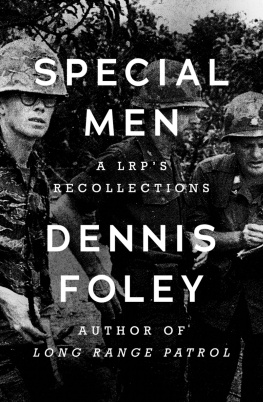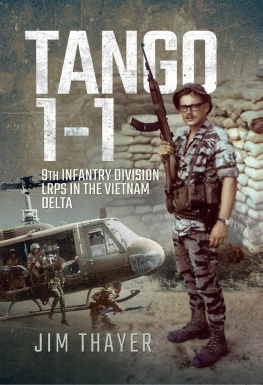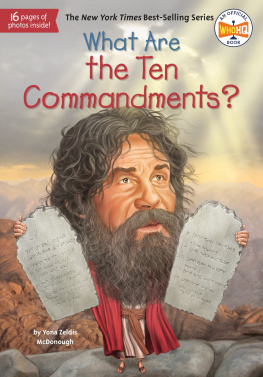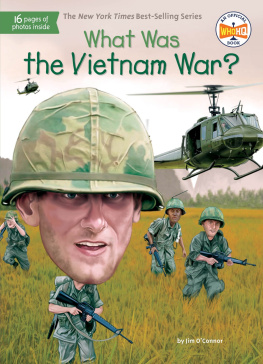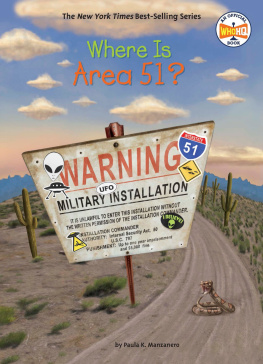Dennis Foley - Special Men: A LRPs Recollections
Here you can read online Dennis Foley - Special Men: A LRPs Recollections full text of the book (entire story) in english for free. Download pdf and epub, get meaning, cover and reviews about this ebook. year: 2022, publisher: Open Road Media, genre: Non-fiction. Description of the work, (preface) as well as reviews are available. Best literature library LitArk.com created for fans of good reading and offers a wide selection of genres:
Romance novel
Science fiction
Adventure
Detective
Science
History
Home and family
Prose
Art
Politics
Computer
Non-fiction
Religion
Business
Children
Humor
Choose a favorite category and find really read worthwhile books. Enjoy immersion in the world of imagination, feel the emotions of the characters or learn something new for yourself, make an fascinating discovery.
- Book:Special Men: A LRPs Recollections
- Author:
- Publisher:Open Road Media
- Genre:
- Year:2022
- Rating:5 / 5
- Favourites:Add to favourites
- Your mark:
- 100
- 1
- 2
- 3
- 4
- 5
Special Men: A LRPs Recollections: summary, description and annotation
We offer to read an annotation, description, summary or preface (depends on what the author of the book "Special Men: A LRPs Recollections" wrote himself). If you haven't found the necessary information about the book — write in the comments, we will try to find it.
Special Men: A LRPs Recollections — read online for free the complete book (whole text) full work
Below is the text of the book, divided by pages. System saving the place of the last page read, allows you to conveniently read the book "Special Men: A LRPs Recollections" online for free, without having to search again every time where you left off. Put a bookmark, and you can go to the page where you finished reading at any time.
Font size:
Interval:
Bookmark:



A LRPs Recollections
Dennis Foley

This book is dedicated to the men of the Tiger Force.
I believe that men are neither destined nor born to great courage in battle. Rather, they are drawn to the higher challenges of combat and remarkable deeds by the camaraderie, inspiration, and encouragement of others.
What follows is a winding path that led me into the company of remarkable menmen whose most dominant qualities were then, and still are, loyalty, reliability, and tenacity.
It was my distinct privilege to be allowed to serve with such men in command of Airborne, Ranger, and Long Range Patrol units. Their dedication to their country and their sacrifices, in most cases, are known only to those who were near to them in battle and near to them in life.
In these pages I would like to remember them and describe the extraordinary deeds they performed and the pain that they suffered in answering their countrys call. They make me proud to know them and to remember them.
by David Hackworth
I can remember the day Dennis Foley reported in to my parachute battalion in Vietnam as clearly as I remember the day my first child was born. Dennis was a tall, lanky infantry second lieutenant with no special skills except that he was qualified as a 7-1542: Airborne infantry platoon leader. His service record indicated that he was just another untried lieutenant joining his first combat unit. Yet there was something about him. It wasnt his youthful eagernessmost shavetails are eageror that he was the son of a distinguished combat officermany of the officers in the battalion were warrior bred and rearedor that he had risen through the enlisted ranks and graduated from Fort Bennings tough infantry officer candidate school (OCS), which as a rule produced the most combat-ready platoon leaders. On the surface, there was nothing special about the twenty-one-year-old, but my sixth-sense antenna told me he was worth watching. I decided to keep him close at hand. I assigned Foley to the battalions elite Airborne Ranger special operations unit, the Tiger Force.
Like most former sergeants, I had little use for second lieutenants. They could get a platoon in trouble faster than a stroll through a minefield. George Patton is reported to have said that an officer wasnt worth a pinch of salt until hed been with troops for ten years, and I share the same view.
I never could figure out army logic. The leadership of an infantry platoon is the most demanding and dangerous job in the armed forces, yet the infantry platoon is commanded by the most inexperienced and least qualified guys in the military. I believed, and still do, that a lieutenant should serve in the infantry enlisted ranks for at least three years, and if he doesnt prove himself a leader by at least making buck sergeant, he should not go on to a commissioning school such as West Point, Annapolis, ROTC, or OCS. In sum, a lieutenant should shovel shit before he rides the horse. This approach will teach him to be streetwise and have respect for his men, because he will have been there and done that.
Over the bullet-splattered months that followed, my reading on Foley was proven to be dead on. He was an exception to the green-lieutenant rule. The something special my antenna picked up was his great heart, which pumped out a keen spirit; his extraordinary brightness, which allowed him to make complex things simple; his pit bull-like tenacity and unflinching loyalty to his troops and then to his bossesin that orderwhich is the way it should be.
Foley was an up-front kind of leader and I frequently found myself on his flank sharing a foxhole in a hot firefight. There, at the bottom line of the soldiering business, I observed firsthand that he was capable, cool, and not afraid to take the high risks that came with his chosen life and death profession.
As is the way with old soldiers who see rare ability in young leaders, I became his mentor. He had the potential of becoming a senior officer and winning battles without taking hard lumps. I tried to pass on my knowledge and give him the assignments that would round him out.
He eventually commanded the Tigers after its skipper, Medal of Honor winner Jim Gardner, was shot dowri. Later, at Dak To, one of the most fierce, longest-running battles of the Vietnam War, he learned that skippering a battalion in combat is a flat-footed son of a bitch. I was my own operations officer, Foley was my assistant, and through twenty-one sleepless days and nights our battalion kicked the bejesus out of an enemy regiment that was four times bigger, but not one inch badder. Foley learned more there than he could have learned in two years at staff schools or skippering a battalion in peacetime. I believe that soldiers learn by doing, and by God he did a lot of doing in those three long weeks that saw our battalion lose almost half its officers and troopers while killing four times that number of North Vienamese regulars.
After Dak To, on another battlefield with a different unit, one of my rifle companies needed a swift leadership transfusion. I put out the word, and with the power of my two-star boss, found Foley, who was about to be assigned as a starched briefing officer in some Disneyland east HQ and scooped him up. He quickly transformed a hard-luck company into a hard-core force and started kicking some mean Viet Cong ass.
Then one day I asked him and his tired unit to go that extra mile. They were due to go in reserve and rest after a grueling campaign. Just when they were about to be lifted out, hot intelligence targeted a Viet Cong heavy-weapons outfit in his zone. After a heated argument in which Foley stood tall against going because his troops were too bushed, he launched; lieutenant colonels always win over captains. But it was a bad win on my part. Foley got blown out, and the hot intel target disappeared.
After our hitch in the hard-core battalion, we never served together again. But from the sidelines I watched him climb onward and upward toward the stars that blinked in the distance. And then well, thats his story, which he tells beautifully in the following pages.
After Foley got shot up, I recorded the following notes about infantry lieutenants. Since little changes in infantry combat except how fast you go and how loud the bang, these observations are just as applicable today as they were back in 1969:
The average infantry lieutenant who joined my battalion was not prepared to lead a rifle platoon. He was not completely trained in the theory of combat in Vietnam; was extremely weak in soldier management, leadership, practical knowledge, small unit combat operations; and was almost devoid of actual field experience. The old saying, Good judgment comes from experience and experience is gained from bad judgment is certainly applicable here. Out of sixty-eight infantry lieutenants who joined the battalion, only two had ever stood in front of a TO & E platoon before. The rest were out of service schools, training centers, and other non-TO & E assignments. As a result of having no experience in the art of handling a platoon, these young and, on the average, well-meaning officers were completely lacking in self-confidence and were, with rare exception, almost valueless as platoon leaders without at least a thirty day OJT period with a stud-type platoon leader.
Font size:
Interval:
Bookmark:
Similar books «Special Men: A LRPs Recollections»
Look at similar books to Special Men: A LRPs Recollections. We have selected literature similar in name and meaning in the hope of providing readers with more options to find new, interesting, not yet read works.
Discussion, reviews of the book Special Men: A LRPs Recollections and just readers' own opinions. Leave your comments, write what you think about the work, its meaning or the main characters. Specify what exactly you liked and what you didn't like, and why you think so.

